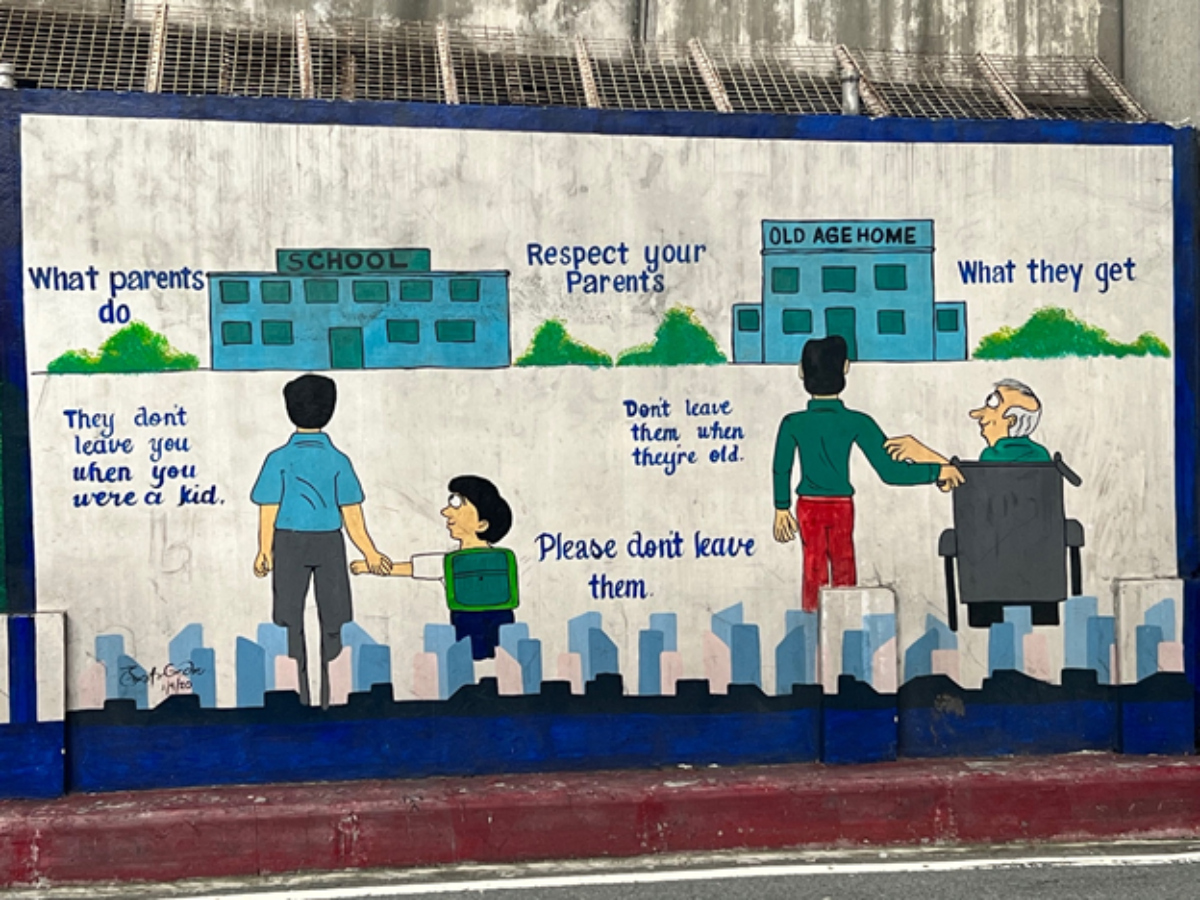Beyond Abandonment: Queer Aging and Community Care
Edward Kenneth Lazaro Nadurata
18 January 2024To be queer and to be old––such permutation seems to be impossible given the realities of life especially for queer people. This dissertation chapter in progress examines queer aging in the Global South by asking how care looks like for a population who is both underserviced by the state and falls out of the bounds of the heteronormative family structure––two institutions that have been seen as the sources of care for older people.

To be queer and to be old––such permutation seems to be impossible given the realities of life especially for queer people. This is especially the case when usual Global North narratives of queer life allude to a lost generation of queer folks due to the HIV/AIDS epidemic that ravaged the community in 1980s and 1990s. Additionally, the fact remains that queer people are still heavily discriminated on and are exposed to violence at very high rates so much so that LGBT people are almost four times more likely to be victims of a violent crime than non-LGBT individuals, at least in the United States.
Shifting our sights from the United States to the Philippines, this dissertation chapter in progress examines queer aging in the Global South by asking how care looks like for a population who is both underserviced by the state and falls out of the bounds of the heteronormative family structure––two institutions that have been seen as the sources of care for older people. This work thinks through these questions in relation to my dissertation’s main concern: If Filipinos are migrating to serve as caregivers and the solution for the global care crisis, then who cares for those left behind? How is the Philippines dealing with its own care crisis at home?
Armed with her pink umbrella which doubly serves as her cane along with her beauty supplies, Dory Hernandez stands out in her bright pink dress, a source of color and light amidst the darkness of the concrete used as material for people’s homes in a dark alleyway. To learn that Dory is a beautician, a craft associated with queer people in the Philippines, is definitely not surprising. What is meant to shock the viewer, however, and the hook for this documentary, Dory, is the fact that Hernandez is actually a 101-year-old trans woman who has “outlast[ed] over a century of gender discrimination” living her life in the streets of Tondo, Manila in the Philippines.
While the documentary conditions us to see Dory through pity, as a solitary figure in the twilight of her life, alone and forced to work because of her circumstances, what we also see is her embeddedness in her community. Those who avail of her services and those who help her out daily are neither from the government or her family but are people in her community. They have been getting their hair styled and dyed from Dory for decades and these memories fuel their desires to help Dory in her old age in her alleged abandonment. In her community, Dory’s transness is never questioned––there is a banality to her being, a comfort in comparison to other news about trans death that have come from the Philippines like the murder of Jennifer Laude, a trans woman who was killed by an American serviceman. While she is described as having survived a century of gender discrimination, in her community, Dory can just be Dory. It is not her transness that is the reason for Dory’s poverty or isolation, there is a community that cares for her. Dory’s embeddedness in this place her entire life has structured the relations she has built in her home and community. These same relations are what keeps Dory going, living, and surviving for another day.
In the beginning of the COVID-19 pandemic, the Care Collective in their book, The Care Manifesto, argued that there is a banality of carelessness in our world––a condition that has only been exacerbated by the pandemic. This, however, of course is something not new, especially for a people who has been seen as the answer for the carelessness in our world. For some, it is actually a banality of care that shapes the quotidian especially when this lack of care is one that is never solved. Filipinos are racialized and exported globally as those who care, fueled by their desires to send remittances because they care for their loved ones, facing their own issues around the same problem that they are meant to solve. These issues around care are magnified especially for queer and trans elders who have no one to fall back on.
However, in shifting our views beyond abandonment and focusing on the communal aspects of care that are present, we also are introduced to other forms of interdependency that have allowed communities to flourish despite this lack and the crisis of care. Being in community and forging relations with those around you show that place matters and that it is through being in relation to one another that we are able to live better and fuller lives.
Cover image has been taken by the author. Licensed under Creative Commons